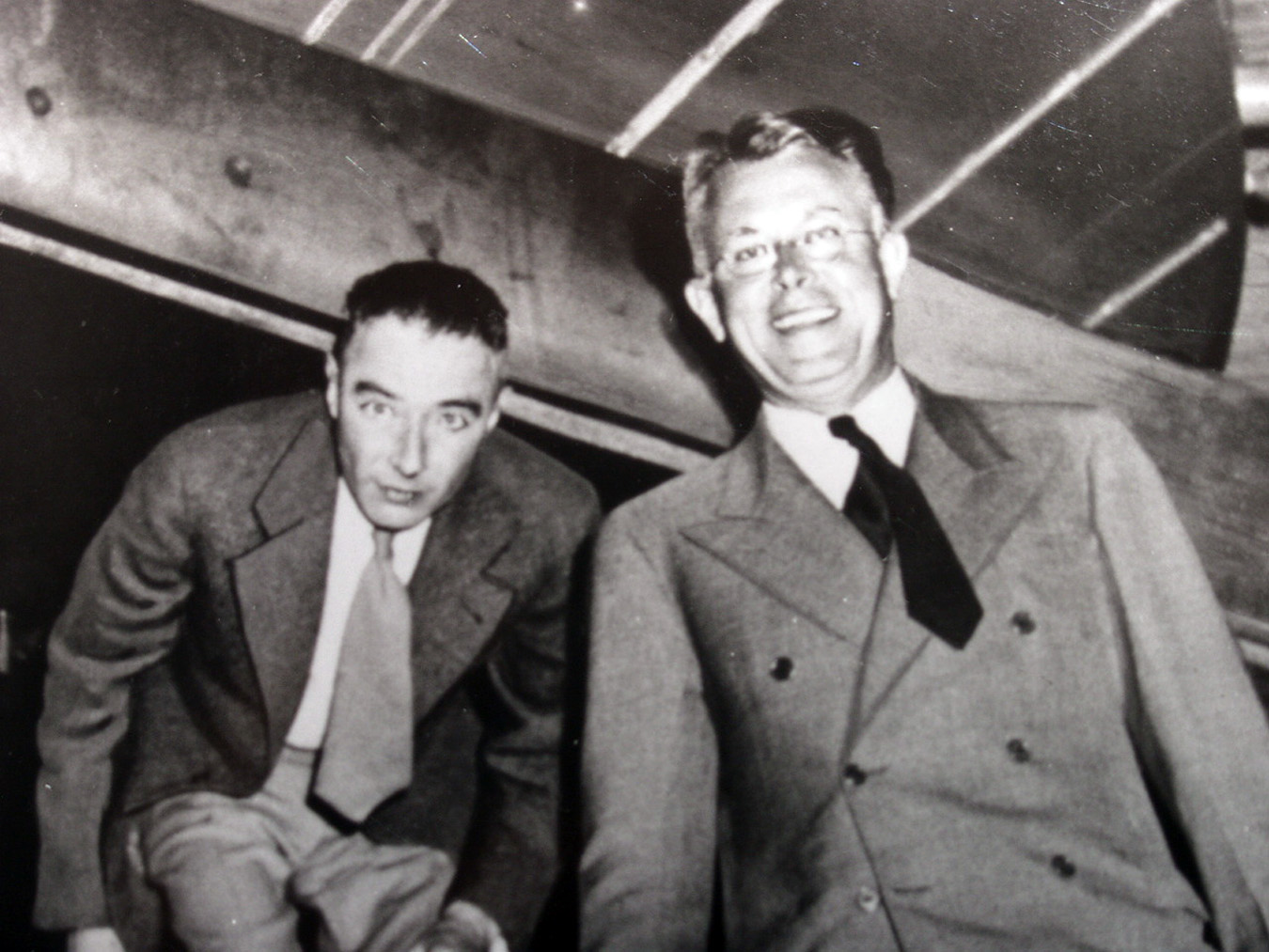From Oppenheimer as a Teacher of Physics and Ph.D. Advisor by Edward Gerjuoy
I was enrolled as a graduate student in the Berkeley physics department from August 1938 to January 1942. Actually when I arrived in Berkeley I knew practically nothing about Oppenheimer beyond his name, even though I had come to Berkeley intending to get my Ph.D. with him. But I immediately became well acquainted with him via the introductory quantum mechanics course he gave that I took in my first semester at Berkeley. I took his electromagnetic theory course in my second semester, and in succeeding years took his advanced quantum mechanics and field theory courses. In each of these courses he manifested the same distinctive teaching style, many aspects of which merit detailed description.
First, and most significantly, he obviously always came to class well prepared, although he equally obviously could have winged it with ease had he not devoted some advance time to planning what he intended to present. I would not say anything nearly as complimentary about the professors who gave any of the other non-Oppenheimer physics graduate courses I took at Berkeley. At least one of these other professors usually came to class unprepared and floundered at the board; the remainder were well prepared but, in contrast to Oppenheimer, did not always have the course subject matter at their fingertips and could be rattled by questions.
Oppenheimer gave no final exams or any other tests. He did assign numerous homework problems, however, many of which were highly instructive and non‑routine. These homework problems always were graded by Oppenheimer himself, again unlike the practice of a number of other Berkeley physics professors. I still have the homework solutions I submitted in his advanced quantum mechanics course, with his handwritten comments in the margin.
He did not designate a textbook for any of his courses that I took, nor did he assign readings or homework problems from any textbook. In fact he only rarely explicitly cited any sources for the classroom material he presented. If we students desired alternative or otherwise clarifying presentations, we generally had to locate them on our own. I add that Oppenheimer’s failure to assign a textbook in his electromagnetic theory course is revealing of his instructional bent. Much of the material he presented, though unquestionably classical electromagnetic theory, unmistakably was intended to serve as an introduction to the newly formulated, indeed still-developing-at-the-time, quantum theory of radiation; such hypermodern material, though standard textbook fare today, simply could not be found in any of the then-available electromagnetic theory textbooks. His failure to assign textbooks for his quantum mechanics course is not revealing and requires no comment. At the time, barely a decade after Schrödinger’s formulation of his wave equation, there weren’t any English language texts for him to assign.
Each class hour literally was a lecture, delivered at high speed. The oral delivery was accompanied by numerous equations written on the board at correspondingly high speed, along with (when appropriate) equally rapidly performed, rarely erroneous calculations. The speed was such that the only way I possibly could grasp the material was to take hastily scribbled notes as he spoke, from which scribblings I would prepare more complete notes as soon as possible after the lecture, while it was still fresh in my mind; there was no textbook to consult, I remember. I am quite certain that every other serious student in those courses of Oppenheimer’s that I attended did the same as I; indeed, I remember numerous occasions when several of us would argue at a blackboard about precisely what he had imparted. Preparing those course notes took a lot of time; certainly I spent more time on each of Oppenheimer’s courses than I did on any of the other courses I took in graduate school. On the other hand, I undoubtedly learned far more physics from each of Oppenheimer’s courses than I did from any other graduate courses I took…
I have no memory of him ever initiating any sort of Socratic dialogue with the class, nor do I recall him pausing in any calculation to ask the class for suggestions on what to do next. In so stating I am not implying that he would not take questions. If at any time during the lecture there was something a student didn’t understand, said student could feel free to interrupt Oppenheimer with a question. I recall no indications that Oppenheimer minded such interruptions; rather he generally would answer patiently unless the question was manifestly stupid, in which event his response was likely to be quite caustic. Unfortunately his patient answers often were not illuminating; seemingly, Oppenheimer did not have the gift of putting himself in a student’s place and recognizing what was evident to him might not be evident to the student. A student who persisted after receiving Oppenheimer’s initially patient answer could expect to find himself on the receiving end of the same sort of sarcasm that an obviously stupid question would elicit. I also must say, however, that I never saw any indications that he bore any grudges at students who momentarily had taxed his patience.
I haven’t yet mentioned probably the most distinctive feature of his lectures, namely his chain-smoking. He spoke quite rapidly, and puffed equally rapidly. When one cigarette burned down to a fragment he no longer could hold, he extinguished it and lit another almost in a single motion. I still can visualize him in his characteristic blackboard pose, one hand grasping a piece of chalk, the other hand dangling a cigarette, and his head wreathed in a cloud of smoke.





